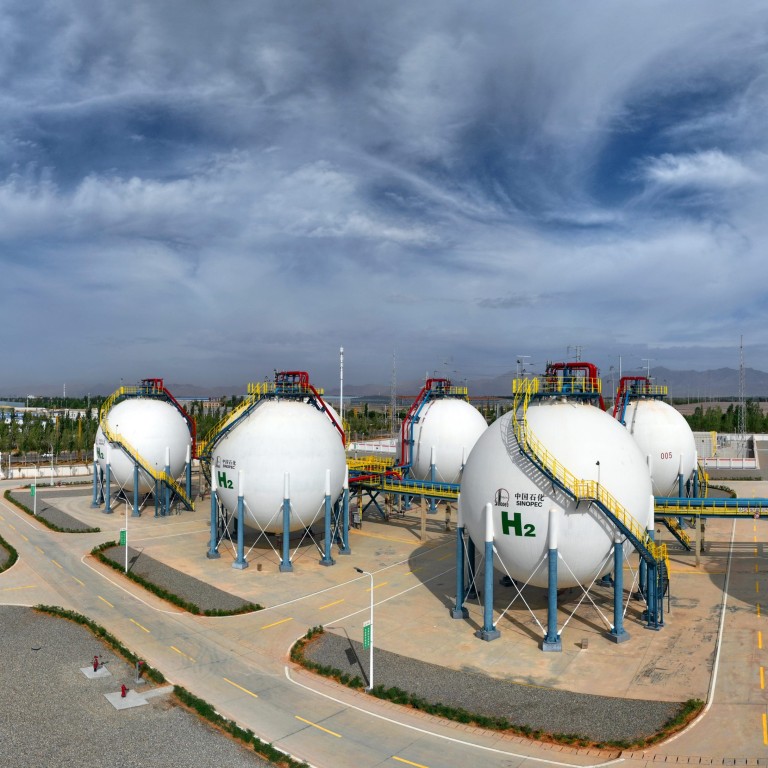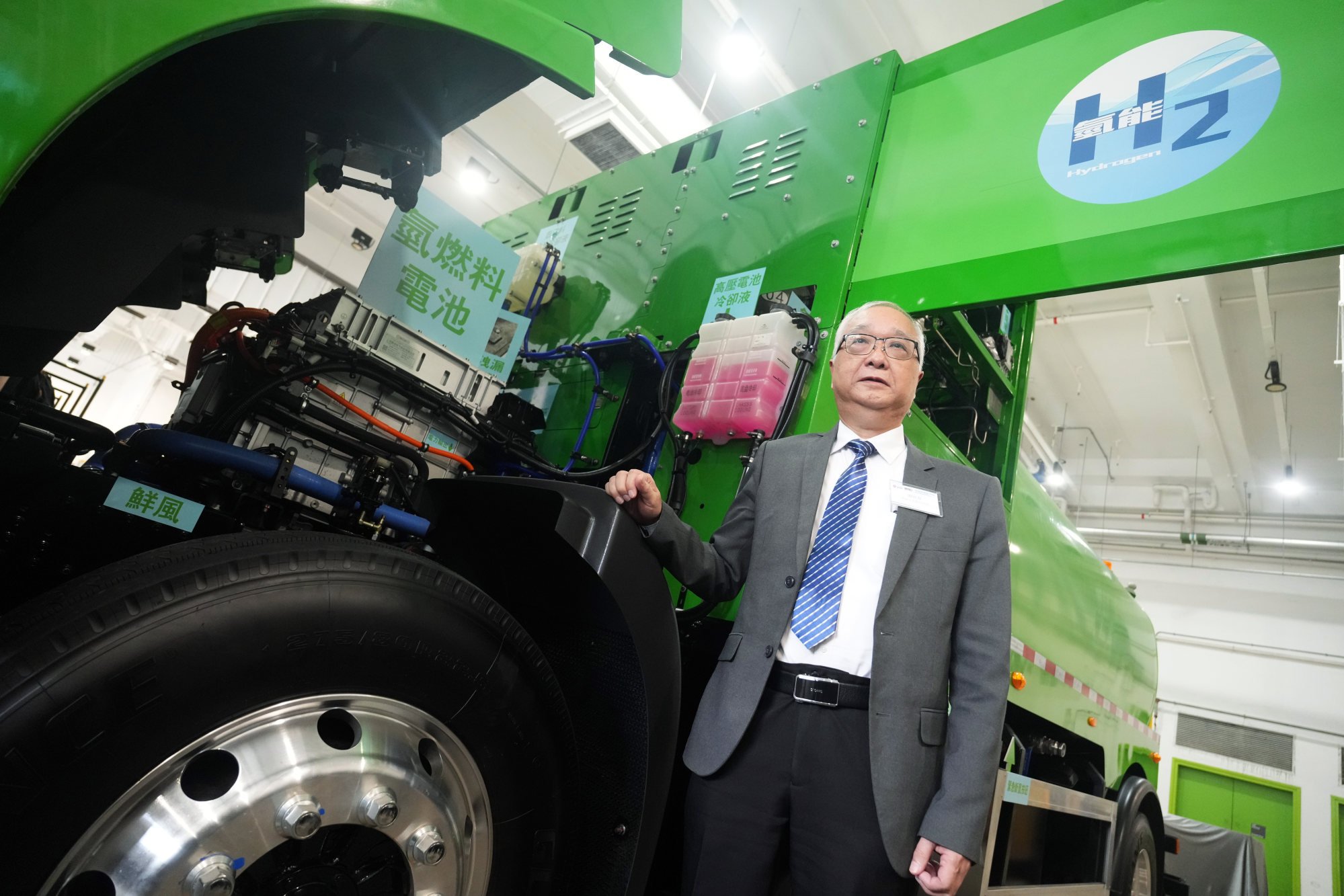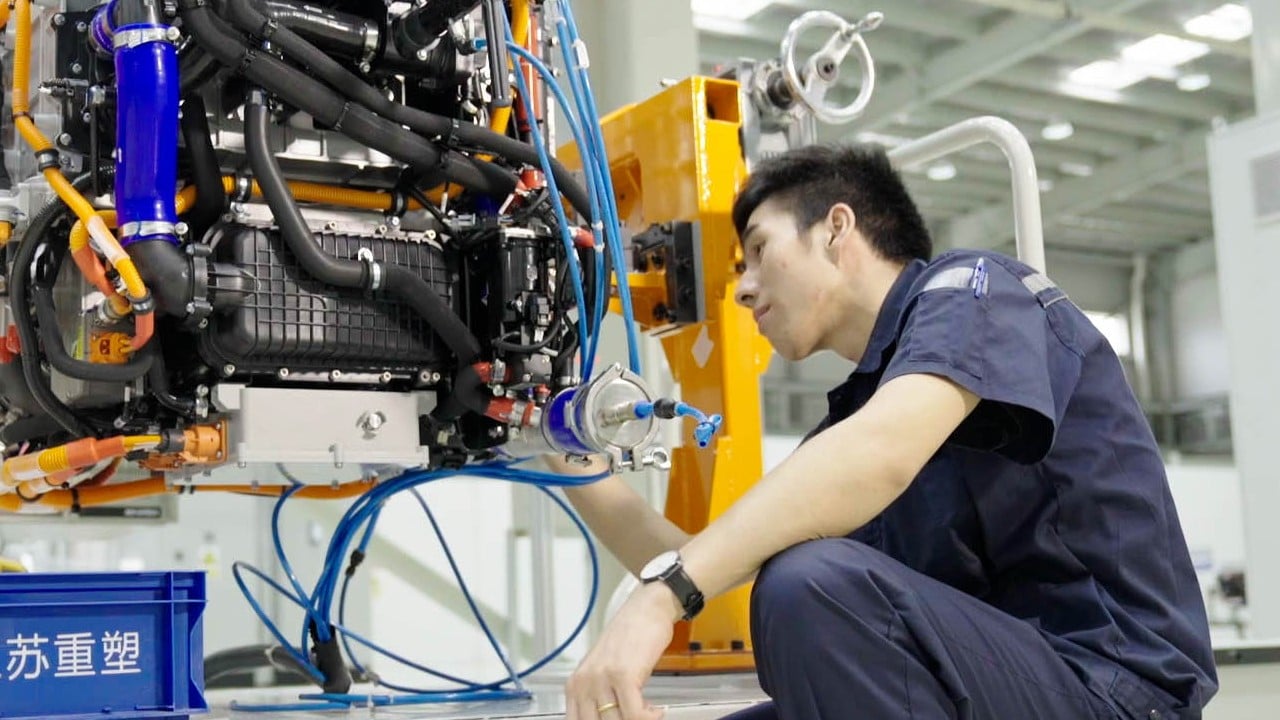
Clear targets, finance methods needed to make Hong Kong hydrogen push a success: experts
- Mainland China ‘at least 10 years’ ahead of Hong Kong in developing hydrogen technology, green group says
Plato Yip Kwong-to, chairman of conservation group Friends of the Earth, said mainland China was “at least 10 years” more advanced than Hong Kong in developing hydrogen technology.
“For example, electrolysers produced by mainland China are the top in the world,” he said, referring to a device that splits water molecules into hydrogen and oxygen.
“If you want to collaborate with Shenzhen, you definitely don’t have as much talent [in Hong Kong].”
The document said the government would formulate certification standards for the fuel in line with international practices by 2027.
Secretary for Environment and Ecology Tse Chin-wan pledged to promote regional collaboration, investment from outside the city, and the development and importation of hydrogen through joint ventures.

The government would leverage its “distinctive advantages of enjoying strong support of the motherland and being closely connected to the world” to promote Hong Kong as a demonstration base for hydrogen development, he said.
Yip, who is also an investment professional in green assets, said the strategy report failed to identify Hong Kong’s “own major niche” as an international financial hub to benefit from the hydrogen market.
“It is about how you can mobilise Hong Kong’s capital market to support a huge market for green hydrogen and green energy transition,” Yip said.
“I am talking about billions and billions of dollars pulled into ESG [environmental, social and corporate governance] portfolios.”
A framework rolled out by Singapore’s Ministry of Trade and Industry in 2022 took a five-pronged approach to build a hydrogen supply chain domestically and in Asia.
Then deputy prime minister and finance minister Lawrence Wong said Singapore would test advanced hydrogen technologies “that are on the cusp of commercial readiness” and conduct research to develop such technologies.
The city state would also work with industry and international partners to enable the formation and scaling of supply chains for low-carbon hydrogen, including advancing the certification system to ensure methodologies were “interoperable across jurisdictions”.
Wong also pledged to develop land and infrastructure plans and pace their implementation accordingly, and to support workforce training.
Singapore is planning to generate up to half of its power from hydrogen by 2050. It has already invested in the sector, having awarded S$55 million for projects and earmarked another S$129 million to solve key obstacles in hydrogen technology since 2021.
Tse, meanwhile, outlined four objectives for Hong Kong: improving legislation; establishing standards; aligning with the market; and making advances carefully.
He added the government would submit legislative amendment proposals in the first half of next year to cover the production, storage, transport, supply and use of hydrogen as a fuel instead of a dangerous good.
Tse also vowed to expand the roles and functions of a government working group to enhance the technical standards and guidelines for hydrogen applications, advise on the way forward for broader commercialisation and provide support for training talent and building capacity.
But Yip said the framework, now led by the Environment and Ecology Bureau, should have been developed at a higher level.
“If mainland China were to handle such a colossal strategy, the National Development and Reform Commission or the Ministry of Industry and Information Technology would have taken the lead instead of environmental authorities,” he said.
A check of the composition of the working group found no commerce authorities were involved.
Lawrence Iu Chun-yip, executive director of the public policy think tank Civic Exchange, agreed authorities should better pinpoint how the city’s market economy could help boost the incentives of moving towards greater adoption of hydrogen.
“[The strategy] did not mention the financial mechanism,” he said. “The government should have promoted and elaborated more vigorously on using the city’s fiscal system to help finance those technologies.”
Dennis Leung Yiu-cheong, a professor of mechanical engineering at the University of Hong Kong (HKU) who specialises in renewable and clean energy, said the government should provide a timeline for its mid- to long-term development of the related technology.
He pointed to the importance of laying out when Hong Kong would move forward from importing grey hydrogen to using blue and green sources of the gas, which have a smaller carbon footprint.
Tse earlier said green hydrogen was up to four times more expensive than grey hydrogen, but Yip warned that carbon emissions from producing one unit of the latter was “no different” from using one unit of fossil fuel.
Environmental group The Green Earth also urged the government to set a timetable for using green hydrogen and provide more funding opportunities for related projects.
Lee Seungkyu, an assistant professor of chemistry at HKU and who specialises in hydrogen technology, highlighted how the gas could help the city attain carbon neutrality.
“There are very strong research institutions in Hong Kong, but there is no strong research institution in south China,” Lee said.
“In combination with this research and development and the trial projects in the plan, I think Hong Kong is very promising and a fast-developing city in hydrogen technology.”

